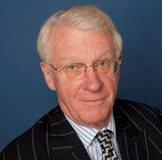Letter to Harmony Board
Below is a copy of a letter we have just sent to the Harmony Board stating our objections to the proposed takeover of Goldfields. As you know, Harmony's authorized share capital is only 350,000,000, and there are already 320,819,739 outstanding. In order to proceed with this offer, they require approval of 75% of those shareholders voting. Therefore, only 25% of those shares voting are required to block the transaction. If you agree with our objections, please make this known to the Harmony Board, management, and their advisors. Thank you.
|
November 2, 2004 Board of Directors Harmmony Gold Mining Company 4 The High Street Melrose Arch Melrose North 2196 South Africa Gentlemen: Tocqueville Asset Management has been an investor in Harmony since 1998. At the present time, clients and principals of our firm own 2.832 million shares. We have reviewed your proposal to acquire Gold Fields in a two-stage transaction as well as your request to increase Harmony share capital in order to facilitate the proposed issuance. It is with great regret that we feel compelled to oppose both proposals, notwithstanding our high regard for the management group that has guided the company since we have been investors. In sum, we feel the offer is unacceptably dilutive to existing Harmony shareholders. We have four additional concerns. First, notwithstanding management’s irrevocable commitment to make a follow on offer to all shareholders after the first stage has been completed, it is nevertheless subject to conditions that may or may not be satisfied. Second, we are concerned that the potential concentration of holdings in Gold Fields among a few shareholders such as Harmony, Norilsk and others who may have agendas that diverge from our own could disenfranchise the remaining minority shareholders. Third, we find the provisions of your ADR agreement, dated 8/12/96, to be undemocratic in that it conveys discretionary proxy to management on all unvoted ADR’s. This presumption effectively disenfranchises all holders of your ADR’s. Fourth, we are dismayed that the board and management group possess only very small personal ownership in the shares of Harmony, suggesting a possibly low degree of sensitivity to the matter of shareholder interest. The proposed offer would require the issuance of 626.9 million new Harmony sharers. That is based on the offer of 1.275 shares for each 491.7 million Gold Fields shares. Adding that to Harmony’s current share base of 320.8 million shares would result in 947.7 million shares. The value of newly issued shares would be 69.3 billion Rand based on Harmony’s closing price of 73.15 Rand per share on October 18, 2004, the date the transaction was announced. The current estimate for Gold Field’s 2005 earnings is 1.0 billion Rand based on the mean earnings per share estimate of $0.315 as posted on Bloomberg and an exchange rate of 6.5 Rand. You are forecasting a 1.0 billion Rand increment to existing earnings through application of your management techniques to the Gold Field assets. However, your savings estimate is just a forecast, and should be discounted appropriately by any shareholder considering the merits of the proposal, as you would do during the normal course of allocating capital internally. Let us concede, for the sake of discussion, that Harmony is able to achieve the full savings of 1.0 billion Rand. After taxes, that would amount to 700 million Rand. Adding this to the estimated existing earnings stream for Gold Fields, the return to Harmony shareholders from this issuance would be 1.7 billion Rand. That amounts to a return on capital of only 2.5% on the 69.3 billion Rand of capital employed (the amount of stock you would have to issue in a full takeover of Gold Fields), well below the company’s announced hurdle rate of 8%. Since Tocqueville has owned Harmony September 30, 1998, shares outstanding have increased from 49.5 million to 320.8 million, or 6.5x. June 30, 2004. During the same period, the annual production sold has increased from 767,000 ounces to 3,225,187 ounces, an increase of 4.20x. Over the same period, the price of Harmony shares has increased 2.45x, a good return, but arguably less than would have been achieved without the significant share issuance. On a pro forma basis, the post Gold Field shares outstanding would be 947.7 million, an increase of 2.95 x, while production would rise to approximately 7,600,000 ounces based on Gold Field’s 2004 production of 4,406,100 ounces and the 3,225,187 million ounces sold by Harmony for fiscal 2004, an increase of only 2.35x. In 1998, one share of Harmony represented .015 ounces of gold production. Today, it represents .010 ounces, a decline of about one third. On a pro forma basis for the proposed Gold Fields deal, it would decline to .008 ounces, just slightly more than half of the production behind each share six years ago. By either benchmark, return on capital or ounces per share produced, the proposed acquisition appears to undermine shareholder value. Gold mining is a business that entails many risks including geopolitical and mining specific. The generously low cost of capital enjoyed by gold mining enterprises reflects the willingness of investors to place a high value on the optionality of the shares to changes in the gold price despite these risks. Unfortunately, cheap capital invites the further risk of abuse by managements who would employ capital in uneconomic ways. Industry management must therefore be especially judicious when issuing new shares. We feel the proposed transaction is a case in point. We remain open to possible further proposals by management as long as they are accretive to our interest as shareholders. Respectfully submitted, John Hathaway |






 John Hathaway, CFA, Senior Managing Director, Co-Portfolio Manager
John Hathaway, CFA, Senior Managing Director, Co-Portfolio Manager









